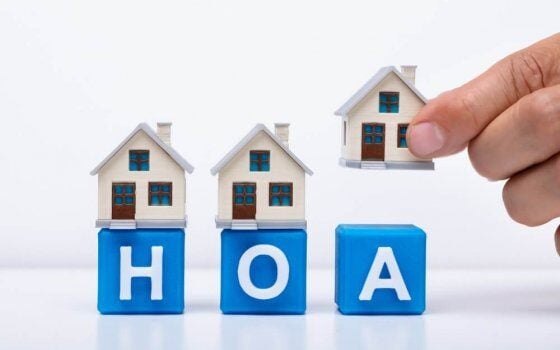HOA Demand Fees

Homeowners’ association (HOA) demand fees are the outstanding debts required to be paid before a homeowner can sell their home.
When a buyer initially purchases an HOA home, he or she agrees to pay the assessments (dues, fines, and fees) as stipulated in the community association’s CC&Rs and other governing documents. If the homeowner falls behind on payments, the HOA can place a lien on the property.
The HOA then has a legal hold on the property through this lien, allowing it to block pending sales until the account is made current. The lienholder also has a legal claim to the asset. Therefore, in some instances, the HOA could foreclose on the property and take possession if demand fee obligations are not met.
How Demand Fees Work When Selling a Home
When a buyer and seller enter into a sales contract, they must get through stacks of paperwork and jump through multiple hoops before the transaction is completed. Title, tax, escrow, and mortgage requirements make even the most routine property sale complex.
This complexity escalates when an HOA is involved, thanks to an additional layer of requirements that need to be satisfied. To illustrate, the sale of a house in an HOA-governed community includes the following steps:
The Escrow Company Asks for a Payoff Demand Report
The escrow company asks the seller to order a payoff demand report from the HOA. This report details the demand fees that are due to the association at closing.
The Seller Orders the Payoff Demand and the Resale Certificate
The seller orders and pays for this report and the resale certificate. These documents provide the buyer with additional information regarding the HOA and the property being purchased.
The HOA or Association Management Company Deliver Reports
The HOA or its management company prepares and delivers these reports to the escrow company, either directly or through a third-party service.
Reports Certify HOA Will Not Hold Interest in the Property
The reports certify that all fees will be paid at the time of closing, and the HOA will not hold interest in the property.
The Escrow Company Calculates the Buyer and Seller’s Demand Fee Obligations
The escrow company uses these reports to process the demand fees into the buyer and seller’s payment obligations at closing. The seller could completely pay the demand fees; however, the buyer could have partial responsibility for payment in some cases.
What Do the Demand Fees Include?
To release its legal right to the home, the HOA needs to be thorough and detail what is owed to it. Demand fees included in the payoff demand report typically have:
- Unpaid association dues
- Unresolved HOA violation fines
- Late fees, interest, and collection costs associated with the past-due account
- Ownership transfer fees required by the sale
- The buyer’s move-in fees
CINC Simplifies HOA Demand Fee Calculations and Report Preparations
Streamline demand fee calculations and payoff demand report preparations with CINC Systems’ community association management software. Comprehensive accounting tools automatically reconcile accounts and generate reports, while intuitive communication platforms facilitate more effective information sharing.
Discover how features like payment lockboxes, integrated banking, and a dedicated online portal can simplify your HOA management tasks.